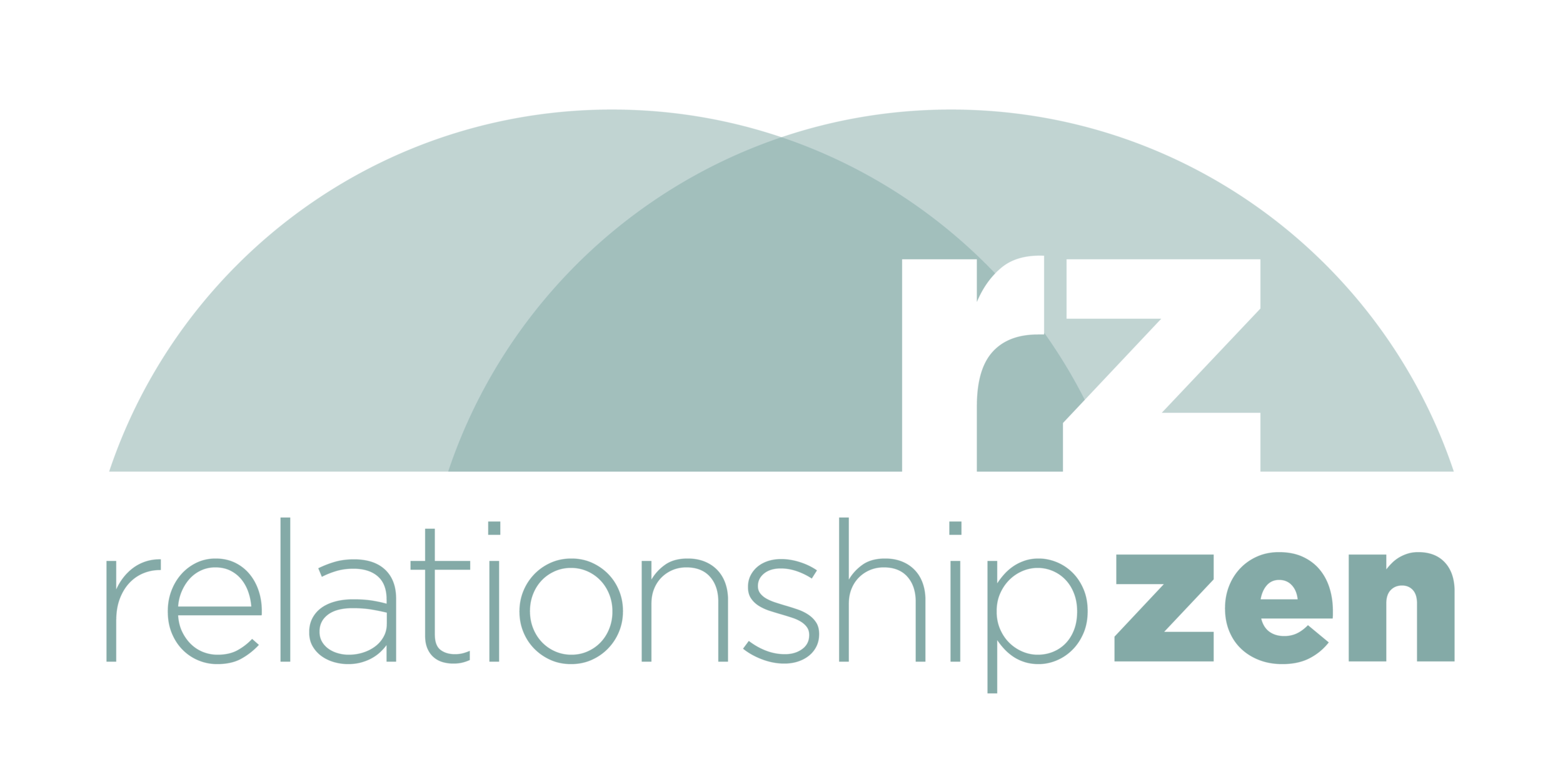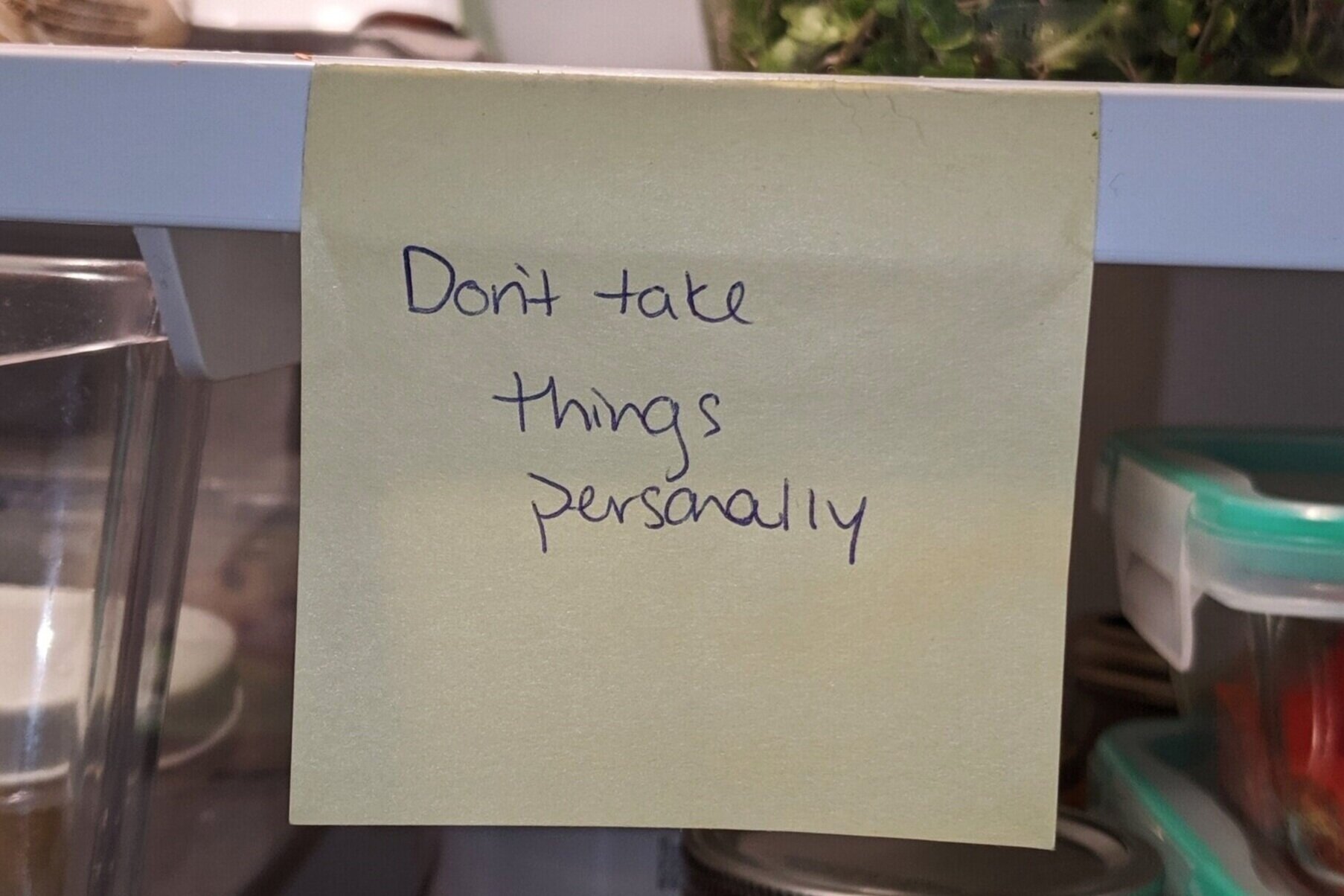Conflict is Normal, Here Are Two Ways to Make it Easier
We’ve all been there: The relationship is going great, you don’t argue, and you’re thinking… Wow we seem to be the perfect match! But then, the infatuation phase fizzles out and the first signs of disagreement and disapproval show up.
Left unchecked, these minor issues become more and more explosive and frustrating, leaving you confused, upset, and feeling like you may just want to run.
Ultimately, you’re tired of the drama and you’re now faced with a choice: “Do I try to make this work, or do I go back to swiping left and right?”
Assuming you want to grow from the challenge or co-create a conscious relationship, then read on to learn:
Why conflict is normal, but not in the way you might think, and,
Two simple yet transformational ways to make conflict easier and less painful.
Why conflict is normal, but not normal
First, conflict is to be expected in relationships. How can we expect completely different individuals with unique sets of histories, perceptions and ambitions to come together and agree on how to create a life together?
Granted, some couples are more compatible than others, but we can’t expect to be completely aligned on everything. Even the nerdiest of relationship nerds disagree, trigger each other, and need to work through issues.
So let’s let go of unreasonable (and potentially discouraging) assumption that conflict is shameful or is a sign of a poor relationship.
Second, conflict is actually healthy when it promotes self-actualization and greater understanding. Healthy conflict can result in better ways of loving and relating. Conflict gets us unstuck, motivates us, and can give the necessary tension to grow.
Bottom line, conflict is normal.
But here’s the kicker: “Normal” is different for each partner. Everyone is raised with, and adopts to, a different set of rules around conflict. Many of these rules are unwritten or even subconscious. To make matters more interesting, we tend to expect others to play by the same agreements (rules, assumptions, beliefs, attitudes, behaviours) as us.
If you aren’t playing by the same agreements around conflict, then how will you ever reach a common understanding or feel like you’re on the same team? Instead, you’ll feel trapped in an endless cycle of drama and make-ups (more on this in a future post).
Take away: Spend time uncovering what normal conflict is to you versus your partner, so you can establish common rules of engagement.
Step One: Know your normal, and understand your personal conflict story
We each have a particular narrative around conflict that shapes how we navigate through present-day arguments and fights. Start to understand your personal conflict story by responding to these questions in your journal:
What did conflict look, feel and sound like in your family or environment of origin?
What behaviours and words were used? What was said? What was left unsaid?
How did people feel? Were feelings explored, repressed, and/or off the charts?
How did conflict begin? How were they resolved, if at all?
What meaning does conflict have in your life?
Think about how your past experiences with conflict have shaped the way you face current conflicts with your partner and others. Reflect on how you might approach things even more productively with this knowledge.
For example, if you grew up in a household where yelling at each other was the norm, you have to realize that it’s not normal for all humans. In addition, even if you both grew up in a household where yelling was normal, you’ll each have different opinions, reactions, and memories of it.
Likewise, if you grew up in a situation where conflict and people’s needs were simply swept under the rug, that’s not normal for all folks either. Ultimately, the experience and significance of conflict is multi-layered and complex.
The point is, as one whole (you) joining another whole (them), you have to explicitly talk about and recognize that your perceptions of “healthy” and “unhealthy” conflict differ.
We highly recommend you book time in your calendar to journal the above questions. Get clear on your expectations when it comes to conflict, and try to align on agreements that work for each of your needs.
Step Two: Share your conflict stories and co-create a new normal
Now that you’re each equipped with greater awareness about your conflict stories, book time in your calendars to share and to build common rules of engagement. And to eventually co-create a new normal.
Here are a few suggestions to learn about one another's histories and to develop your joint agreements:
As always, pick a time and space where you each have the energy to talk this through. Set the mood with whatever makes you feel comfortable. Trying to have this conversation in the middle of a heated argument is probably not a great idea. We know this one from experience!
These convos are uncomfortable and make us feel vulnerable too. To make things easier, remember that you're here for each other. Just BREAK THE ICE by counting down "3, 2, 1" then one of you starts to share. Flip a coin to decide who goes first. Make it fun!
Give each other space to fully explain your stories. Ask open ended questions because the goal is to LEARN about one another's relationship with conflict, NOT to persuade each other one way or another. Invite each other to share more by saying things like “Tell me more about that…” and by asking open ended questions like “What was that like?”, “How do you think that influences our relationship?” and “Why do you think that is?”. Take notes in your journal and record any insights that will help you build rules of engagement.
Share your insights and start brainstorming 1 to 3 rules such as defining what respect and compassion look like, time-out words, and what behaviours are OK and not OK in your version of a healthy conflict.
Make it visual. Sketch it out, role-play, or write your new agreements on a poster! Then, place the visual somewhere where you’ll be reminded of your rules each day. One of our rules is: “Don't take things personally.” That sticky note is in the fridge where we see it daily.
Celebrate this milestone in your relationship! You’ve deepened your sense of intimacy and you’re a little more equipped to recognize and deal with conflict the next time it rolls around. You got this!
Keep adapting your rules as you gain more experience with healthier conflict. Make them work for you and your relationship.
Note: Recognize that you’ll have different views of what “healthy” and “unhealthy” conflict is, and that this can be a strength. Treat this as one of the many opportunities you’ll use to co-create a better relationship. It’ll take constant reinforcement and adaptation and that's okay!
You can do it! You and your relationship deserve this.
Having relationship problems? Want to crush those relationship goals with less stress and more ease so you can achieve more, feel more and experience more as a team?
If so, join fellow relationship nerds on our mailing list (at the bottom of this page) so you don’t miss out on advice and exclusive offers.
We’re not two halves, we’re two wholes sharing a path and we’re inviting you to join the movement!
David and Lindsey
Your trusted conscious relationship coaches
P.S. If you loved this article, please share it with a friend who needs it. Your shares help inspire one thriving relationship at a time. Or, read on. Thank you!












